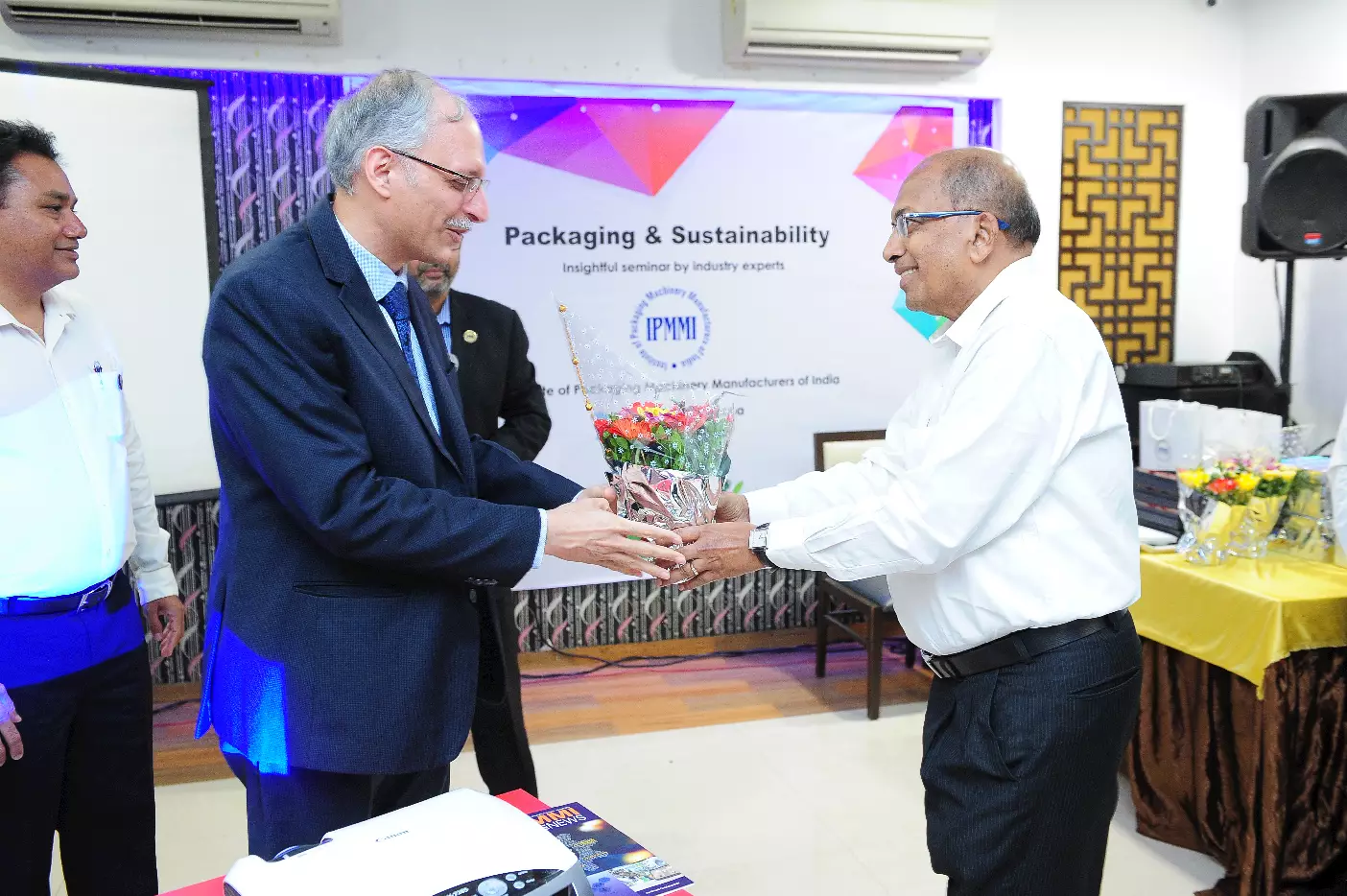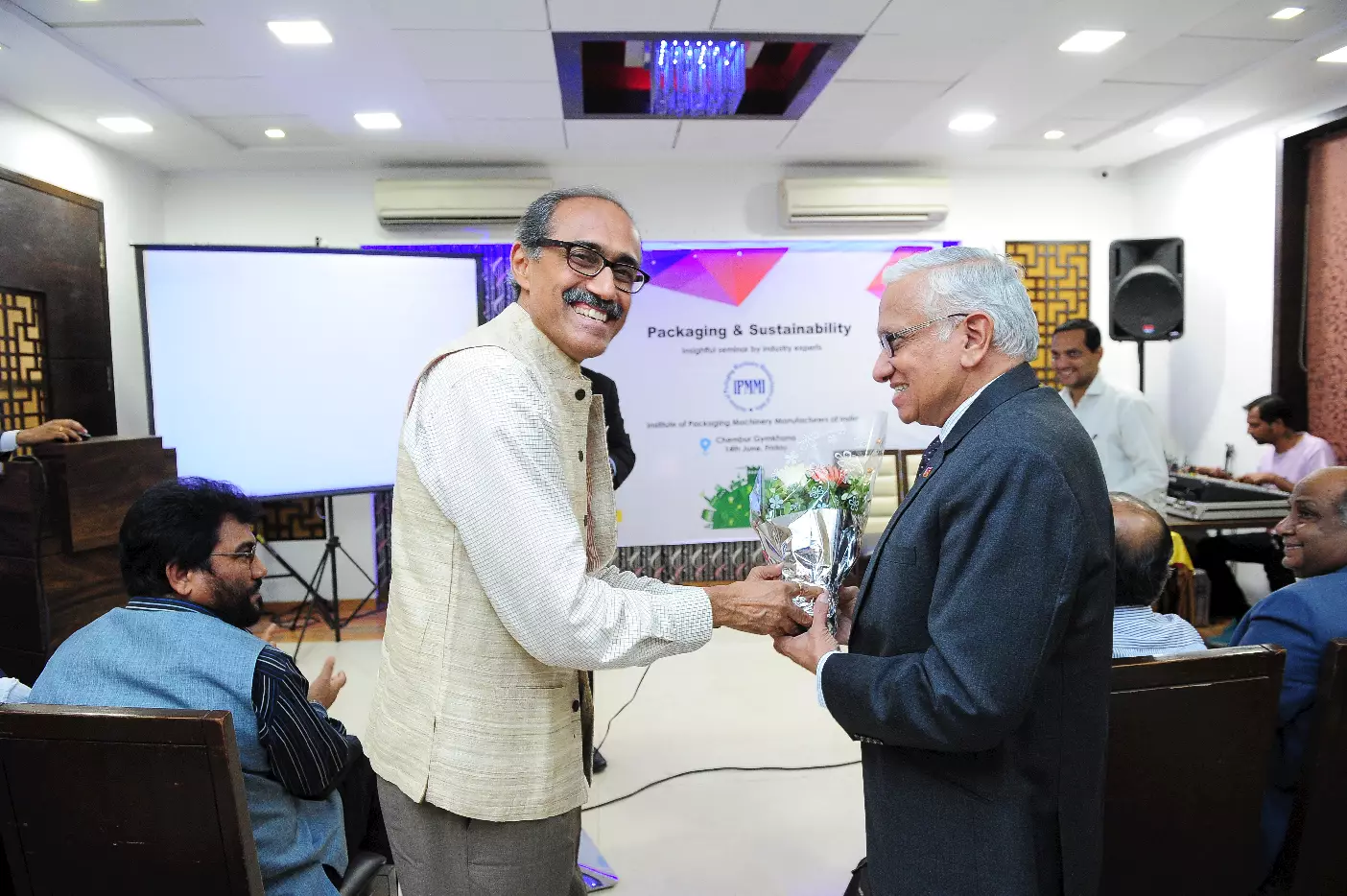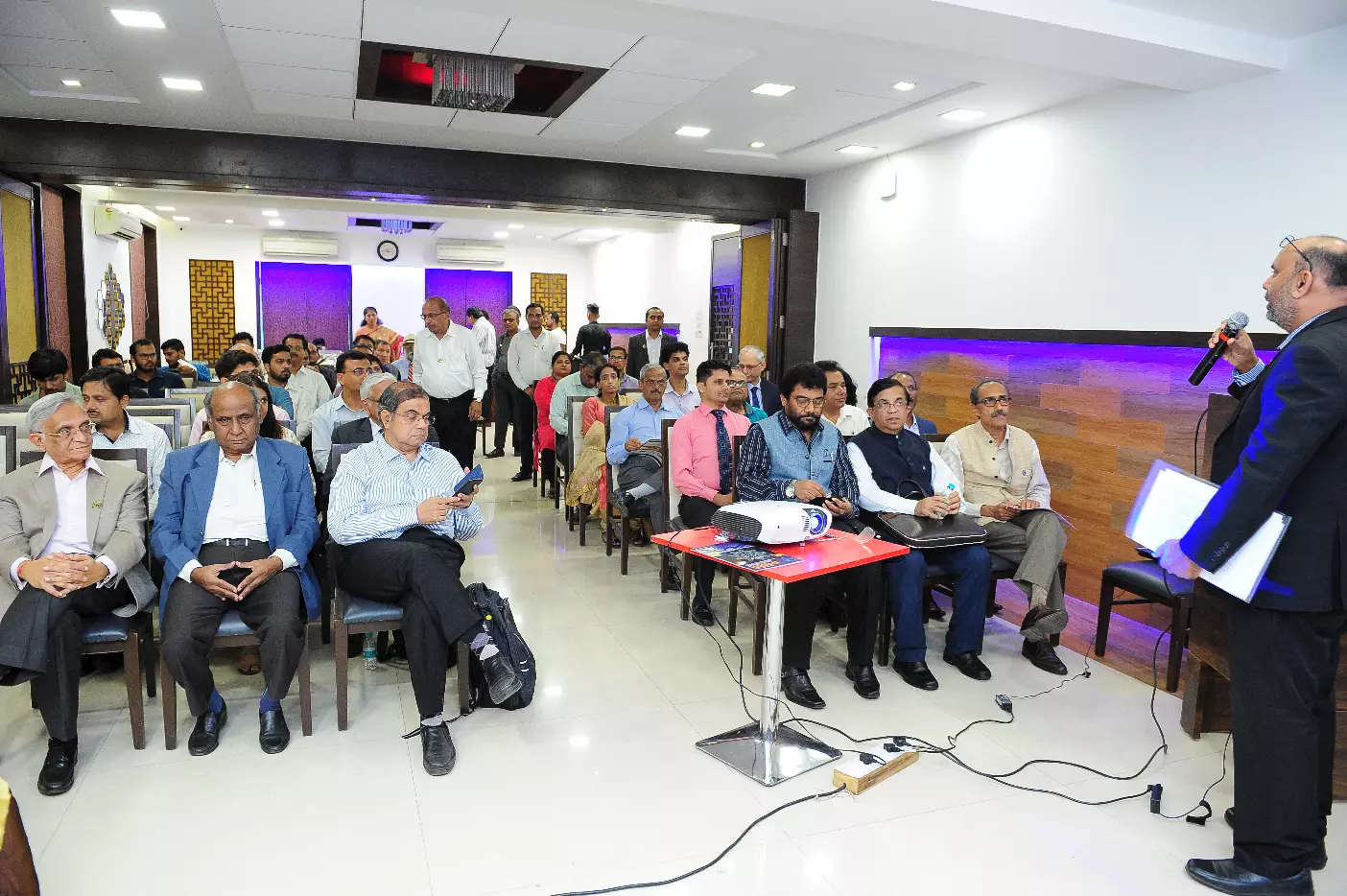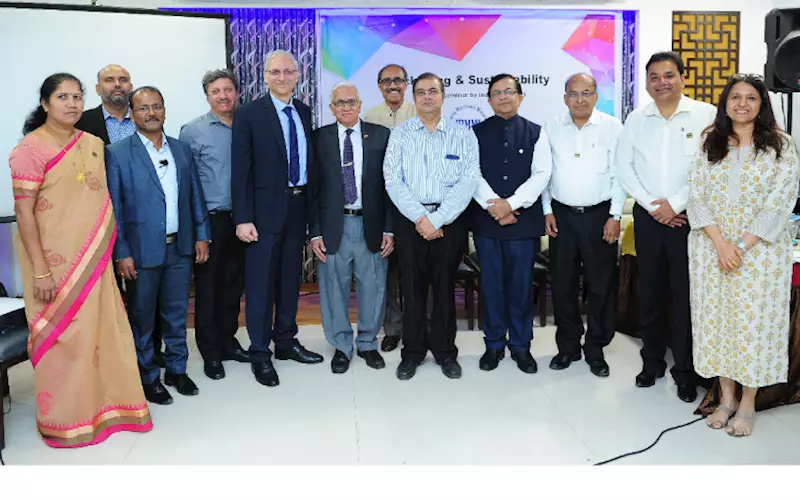IPMMI hosts seminar on packaging and sustainability
The Institute of Packaging Machinery Manufacturers of India (IPMMI) hosted a seminar on sustainability in packaging at Chembur Gymkhana, Mumbai recently. The event was attended by packaging industry professionals, including government officials, consultants, associations, and trade fair organisers.
13 Jul 2019 | By Abhishek Muralidharan
Samir Limaye, president, IPMMI, welcomed to the members, guests, special invitees and speakers. Makdum Jahan, IPMMI committee compared the event.
The event provided vital insights for packaging machinery manufacturers and brands, to address the long-standing debate on plastic and its sustainable alternatives.
Marzban Thanevala, former senior VP, business development and marketing, Huhtamaki PPL, raised an interesting point on the way plastics are portrayed. He said, “The optics around plastics and the images that flash around the world are demeaning the core properties of plastic. We must understand that, as of today, there is a huge momentum in terms of talking about regulations. As far as lawsuits are concerned, we cannot just say that we are all fine.”
He also spoke about the packaging regulations in India, which included that all flexible packaging laminates in India got under the ‘recyclable’ category in 2018.

V Krishnan, director Spheretech felicitating Marzban Thanevala of Huhtamaki PPL
Thanevala also highlighted the opportunities for FFS packaging machines with polymer laminates from the same family, and the new packaging machines to replace the current lines with retrofits and modifications. Highlighting the regulations regarding multilayer plastics he added, plastics are being directly or indirectly used in all forms of packaging.
According to Dr S Radhakrishnan, director - research development and Innovation, MIT, over 500-billion plastic bags are used per day worldwide, out of which, the plastic generated in India is 15,342-tonnes per day. “The problem lies in segregation; a separate bin for compostable and recyclable waste is a must,” he said.
Radhakrishnan added,” Sustainability, green industry and green technology are concurring. If we go into the material aspect of all this, flexible packaging market is growing. And in fact, it is so much so that it is expected to reach 250-billion dollars by 2024 in the packaging sector alone.”
He stated that India is the first country to use milk pouches, and the needs packaging of perishable requires development. “Over 40% of plastics are used in packaging and recyclability is the only choice,” he said.
In addition, he emphasised synthetic paper being a good alternative as it is totally recyclable, printable and foldable, like any other paper and provided 12 points which decide whether the process is green that included prevention of waste, design for degradation, and use of renewable feedstock, among others.
“There is not one single alternative to sustainability; it can only be achieved as a whole,” added Radhakrishnan.

Samir Limaye of IPMMI felicitating Dr S Radhakrishnan of MIT
Rajesh Kumar Gera, assistant vice-president, RIL, shed light on PET as the sustainable packaging material. According to Gera, PET is a greener material than any glass or metal, if used in correct proportions and if it is recycled properly. In India, PET is widely recycled for on food applications such as shampoos, but even that has to be FDA approved and for food-based PET recycling facilities should come into the picture.
“We have to find ways to deal with the solution than banning it, we need to deal with plastic pollution,” said Gera, adding that the global challenges for the next five years is to achieve the same quality and properties of the recycled PET’s and the establishments of appropriate recycling facilities.
Dr R Rangaprasad, business head, Packaging 360, stressed on the point that a circular economy relies on recycling and repair to create an almost closed loop in order to reduce waste. He shed lights on the sustainable adhesives for flexible packaging and recycling of polystyrene.
Highlighting the recent developments carried out by the brands, he gave the examples of Dabur’s mega-plastic waste recycling initiative, ITC’s model to collect multi-layer plastic waste with PMC and Amazon’s packaging-free shipment program to nine cities in India.

Makdum Jahan of IPMMI committee compared the event
Altogether, few of the conclusions that can be extracted from the experts are the importance of recycling and recycling facilities, PET as a great sustainable alternative, and the chance to develop packaging machines for the future of sustainable packaging.
Ashok Kothari, board of governor, IPMMI, shared about IPMMI and his thoughts on packaging and sustainability, followed by felicitation of speakers by Mahendra Mehta, board of governor, IPMMI and special guests by Samir Limaye.
IPMMI is an exclusive national body representing the packaging machinery manufacturers in India. IPMMI caters to the need of the packaging industry covering package conversion, packaging line operations, packaging systems, online and end of line systems, ancillary machinery and equipments besides testing and quality control equipments.
(The article includes inputs from Parag Jawale, editor, IPMMI)











 See All
See All